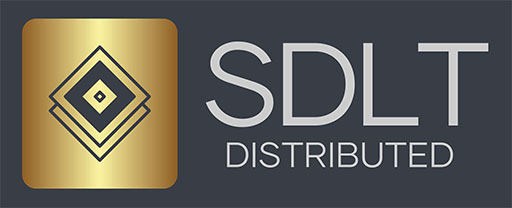
FCA signals direction on fund tokenisation
The UK Financial Conduct Authority (FCA) last month published proposals to change its rules and guidance to facilitate fund tokenisation. Its consultation, “Progressing Fund Tokenisation” (CP25/28), is now open for industry feedback. It sets out how authorised funds could use distributed ledger technology (DLT) in practice, while maintaining existing investor protections. For asset managers, depositaries and service providers, the paper signals that tokenisation is moving from concept to implementation.
From Blueprint to Roadmap
The proposals build on the Investment Association’s “Blueprint for Fund Tokenisation,” published in 2023 with HM Treasury, the FCA and industry stakeholders. The Blueprint outlined a phased journey, starting with modest changes to fund registers before moving to more ambitious use cases such as smart contracts, fractionalisation and on-chain distribution.
The FCA’s consultation brings the first stage of that roadmap into reality. Authorised funds would be permitted to maintain their unit registers on a blockchain while leaving other elements — fund structure, custody arrangements and depositary oversight — unchanged. At the same time, the FCA is testing industry views on a broader reform: whether investors should in future be able to transact directly with a fund, rather than always through the authorised fund manager or its appointed intermediaries.
The publication of the consultation also highlights the regulator’s willingness to respond positively to industry initiatives. It underlines that the FCA sees tokenisation not only as a question of regulatory compliance but as an opportunity to support innovation, enhance efficiency and reinforce the international competitiveness of UK asset management.
Together these two strands — tokenised registers as a defined reform and direct fund dealing as an open question — frame the regulator’s direction of travel.
Tokenised Registers: Stage One of the Blueprint
The first strand is the most immediate. Authorised funds would issue and maintain their unit registers on a blockchain rather than through traditional systems. This preserves existing structures and oversight mechanisms, while introducing the operational efficiencies of digital registers.
Tokenised registers promise faster and more transparent record-keeping, fewer reconciliation points, lower administrative costs and near real-time visibility of holdings. They also create scope for innovations such as fractional ownership. Crucially, these advantages are achieved without undermining the investor protection framework that has long underpinned confidence in UK authorised funds.
Direct Fund Dealing: A Parallel Proposal
The second strand is more ambitious. The FCA is asking whether investors should be able to transact directly with the fund itself, rather than exclusively through the authorised fund manager or its appointed distributors and platforms.
Direct dealing could reduce distribution costs and simplify investor access, while blockchain-based registers would make the model more feasible by providing a single, real-time source of ownership records. Yet it also raises difficult questions about operational resilience, fair treatment of investors and the evolving role of managers and intermediaries. Unlike tokenised registers, which are a defined near-term reform, direct dealing remains exploratory: a way for the FCA to gauge appetite for a structural shift in how investors access funds.
The Road Ahead
Both proposals sit within a longer roadmap. The FCA has made clear that tokenisation will not stop at the register. If the first stage succeeds, later phases could see DLT applied more widely to settlement, fund servicing and administration. Over time, smart contracts may become a routine part of fund infrastructure, automating functions that today rely on multiple reconciliations and manual oversight.
The possibility of direct fund dealing illustrates how tokenisation could ultimately do more than streamline operations — it could reshape the very channels through which investors access funds. By phasing reforms, the FCA is giving the industry confidence that change will come step by step, avoiding wholesale disruption while leaving no doubt about the direction of travel.
Broader Implications for the Private Funds Industry
Although the consultation is focused on authorised retail funds, the implications extend far wider. Private funds are not within scope, but the FCA’s willingness to adapt its rulebook to accommodate DLT sends a clear signal about regulatory direction. Managers in private equity, real estate and credit are already experimenting with tokenised feeder structures, blockchain-based investor reporting and digital secondary trading platforms.
If tokenisation becomes embedded in the authorised funds regime, it will provide a precedent for how digital registers, on-chain transfers and smart contracts can be reconciled with UK regulation. This could encourage further innovation in private markets, where efficiency gains in capital calls, secondary liquidity and reporting are particularly attractive. In practice, the authorised funds roadmap may serve as a proving ground for the wider industry.
Conclusion
Fund tokenisation is no longer just a blueprint or an aspiration. Through its consultation on rule changes, the FCA is embedding DLT into authorised fund operations while testing appetite for more fundamental reforms such as direct fund dealing. For private as well as authorised funds, the message is clear: tokenisation is coming, and those who prepare now will be best placed to capture the benefits of this structural transformation. In doing so, the FCA is also delivering on its new competitiveness and growth objective — showing that regulation can both protect investors and enable the UK to remain a leading global centre for asset management.
Steven Lightstone is a partner in the London office of the Philadelphia-headquartered law firm Morgan Lewis
